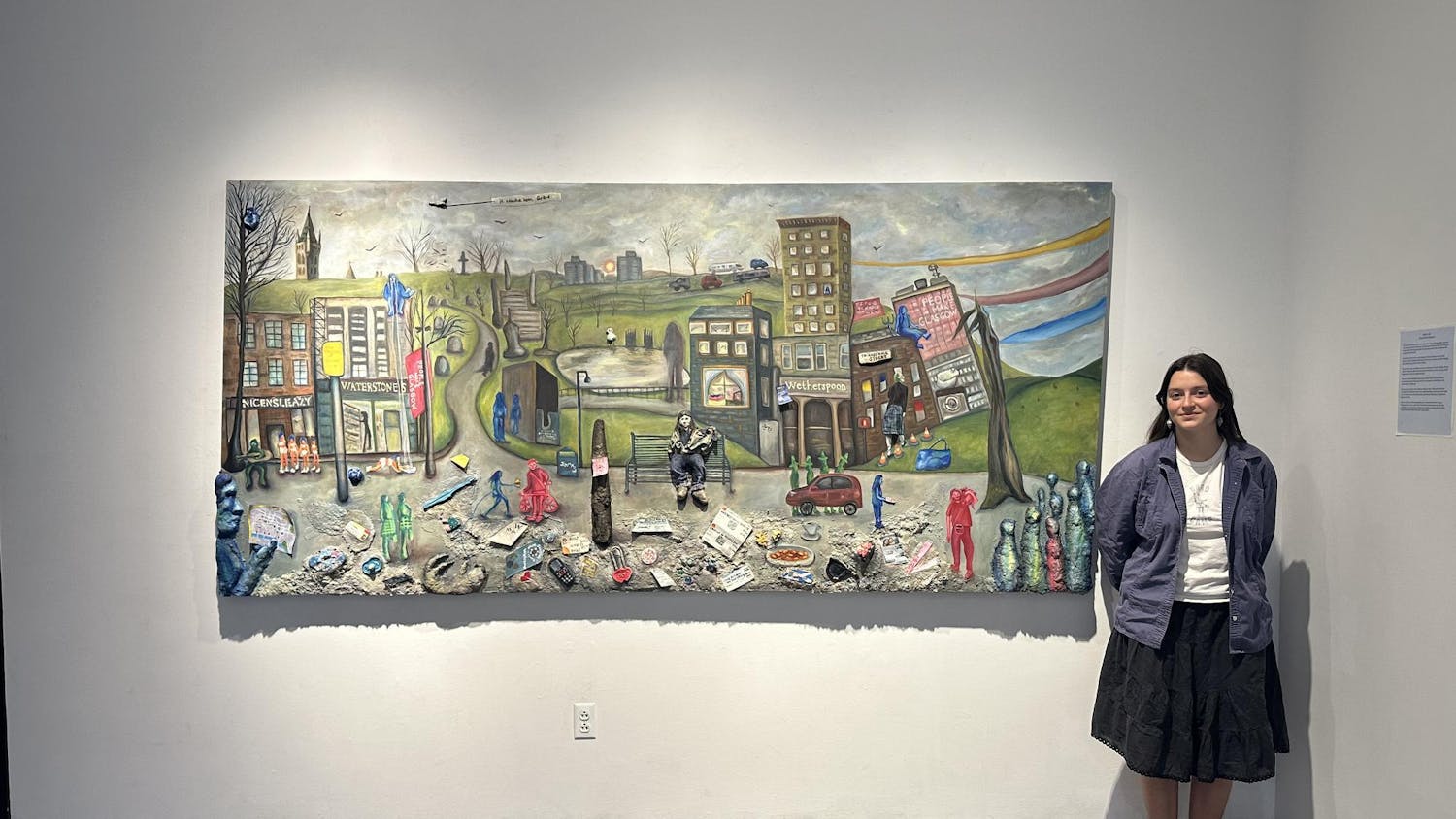Internationally recognized British-Indian author and political activist Salman Rushdie spoke to a diverse audience in an overflowing Salomon 101 about freedom of speech, India's future and literature's relationship with politics.
Rushdie, a Booker Prize winner and controversial defender of free speech, began his lecture on "Public Events, Private Lives: Literature and Politics in the Modern World" with a reflection on his writing's political influences.
"My private life has probably been more affected by public events than some," he told the crowd, referring to an assassination attempt resulting from his criticism of Islamic fundamentalism and a lawsuit for defamation by former Indian Prime Minister Indira Gandhi.
"The space between public life and private life has shrunk," he said. Unlike many famous writers from previous eras, novelists today are obligated to acknowledge some larger social context in their stories, he added.
While authors used to create characters with the assumption that "the life you have is shaped by your obsessions and constraints and your nature," Rushdie said, recent large-scale events have been challenging this view. Especially after the Sept. 11 attacks, "we have the sense of not having agency over our lives."
Rushdie said international affairs affect the lives of individuals now more than ever, singling out Pakistan as "probably the most important country in the world."
"What happens in Pakistan is going to determine our fates," he said.
He then interrupted his statement about Pakistan and India making peace with a burst of laughter. "Sorry, I just saw a pig fly," he said.
The greatest controversy sparked by Rushdie developed because of 1988's "The Satanic Verses," which openly criticizes the ideology underlying the Islamic Revolution, leading Ayatollah Khomeini to issue a fatwa ordering Rushdie's execution.
Of the resulting assassination attempt by Mustafa Mahmoud Mazeh, Rushdie mused, "Guess which one of us is dead," alluding to Mazeh's unintentional suicide bombing.
"Don't mess with novelists," he said, adding that if the situation had not been decidedly "not funny, it would have been quite funny."
To a fundamentalist like his would-be assassin, secularism is "the lowest circle of hell, and that's where I live," he said. "The parties are better."
"History itself is the enemy of the fundamentalist," he said. The "ability to constantly reshape that narrative" based on changing ideals and new information distinguishes a free society from a fundamentalist one.
Rushdie told the audience that he explored the question of "Do we shape history or does it deform us?" in his 1981 novel "Midnight's Children." . In 1984, Gandhi took legal action against Rushdie for referring in his novel to a rumor that she had contributed to the death of her husband, Sanjay Gandhi. According to Rushdie, this incident illustrated the power of recollecting the past to challenge authorities who try to deny it.
The controversy with Gandhi also demonstrated the ramifications one faces "when you piss off powerful people," he said.
Rushdie said he "got quite excited" upon finding out he could be acquitted if he convinced the court that Gandhi had abused power, and began collecting letters attesting to her poor character. The situation dwindled down, though, after Gandhi's assassination later that year, which inspired Rushdie's novel "Shalimar the Clown."
Rushdie said he urged freedom of speech for a filmmaker who had defamed him, telling the British Board of Film Classifications that he would not sue if the film were released. After years in hiding because of restrictions on what he could say, he said he did not want to be "defended by an act of censorship."
Free speech starts, not ends, with the right to express dissent, Rushdie told the crowd.
"If you don't defend the free speech of people who say things you detest, then you don't believe in free speech," he said.
Professor of Political Science Ashutosh Varshney, who organized the lecture and has known Rushdie for years, said the University is "very happy" to sponsor controversial figures "so long as they are talking about issues that are of great concern. The University is not in the business of censoring."
Many students at the event appreciated Rushdie's speech and were receptive to his opinions. Yashua Bhatti '10 said the lecture was "very heartwarming. It was what I expected from an author of his caliber."
In response to Rushdie's statement that the world faces a "battle of the humorous against the humorless," Hannah Schafer '09.5 said Rushdie proved himself Tuesday night to be part of the former category.
The event was sponsored by the Year of India — Brown's project to spread awareness of Indian culture and politics — along with the Cogut Center for the Humanities and the Watson Institute for International Studies.




